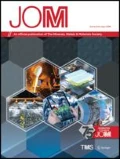Conclusion
The U.S. Environmental Protection Agency is proposing to change the way it views recycling and its regulations. One of the proposals would radically change the way secondary materials are handled. The preliminary rule on the redefinition of solid waste will be issued between April and July of 1997. Industry will be given an opportunity to comment at that time.
In making their voice heard in this and other matters of policy, industry in general and the copper-recycling industry in particular bear a responsibility to act in an environmentally sound manner. This requires a better understanding of the relationship of industry’s activities and their effects on the environment. It also necessitates industry reaching out to the environmental community to establish a much more cooperative relationship.
References
United Nations Environment Programme,Basel Convention Agreement, Basel Convention on the Control of Transboundary Movements of Hazardous Wastes and Their Disposal, (March 22, 1989) Item 3.
OECD Chemical Group and Management Committee,Lead Risk Reduction-Options for Further Risk Reduction Activities and Actions (Paris, France: June 21, 1995).
OECD Environment Policy committee Trade Committee,Draft 1995 Report to Ministers on Trade And Environment (Paris, France: May 23, 1995).
U. Hoffman, UNCTAD,A Statistical Review of International Trade in Metal Scrap and Residues With Particular Emphasis on the Trade Between OECD and Non-OECD Countries in the Period 1980–1993: A Preliminary Progress Report (Geneva, Switzerland: June 5, 1995).
D.C. Esty, “International Trade and the Environment Opportunities For Business and Environmental Cooperation” (Document presented at the National Wildlife Federation Conservation Council Synergy ’95 Conference, Geneva, Switzerland, May 1–2, 1995).
R. Frosch,Harvard Project on Public Policy for Industrial Ecology (Harvard University Center for Science and International Affairs, April 13, 1995).
Rights and permissions
About this article
Cite this article
Silber, A.B. Copper recycling: How trade and the environment will shape the future. JOM 49, 38–39 (1997). https://doi.org/10.1007/BF02915477
Issue Date:
DOI: https://doi.org/10.1007/BF02915477

